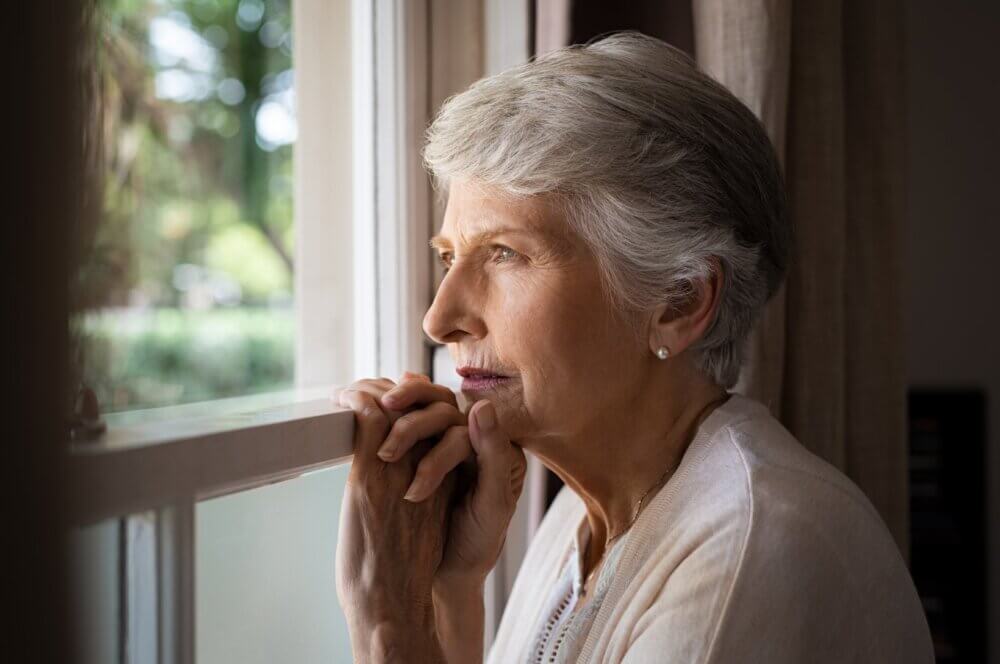Spotting Signs of Depression in Older Adults
A Comprehensive Guide

How to Identify Depression in Older Adults
According to leading experts in geriatric psychology and psychiatry, depression affects a significant number of older adults. This comprehensive guide aims to help you identify the signs of depression in older loved ones and provides practical tips for offering support. By staying informed and vigilant, you can make a positive impact on their mental well-being.

Why Are Older People More Susceptible to Depression?
Loss of Loved Ones
As we age, the likelihood of experiencing the loss of loved ones increases. This loss can trigger feelings of grief, sadness, and loneliness, which may contribute to depression. Recognising the impact of such losses is essential for understanding the emotional state of older adults.
Retirement or a Loss of a Sense of Purpose
Retirement often marks a significant transition in an individual’s life. The loss of a daily routine, social connections, and a sense of purpose can lead to feelings of emptiness and loss of identity. These factors can contribute to developing depression in older adults.
Health Problems and Medications
The prevalence of health problems among older adults is higher, and chronic illnesses often require multiple medications. Certain medications, as well as the physical discomfort caused by health conditions, can contribute to the development of depressive symptoms.
Reduced Mobility
With age, mobility may become limited due to physical ailments or the fear of falling. The loss of independence and decreased ability to engage in physical activities can lead to feelings of frustration, isolation, and sadness, increasing the risk of depression.
Feelings of Loneliness and Isolation
The loss of social connections, such as the passing of friends or the inability to engage in social activities, can lead to feelings of loneliness and isolation. These emotional experiences can significantly impact an older adult’s mental well-being and contribute to the development of depression.
Financial Anxiety and Fear of Falling
Concerns about financial security, especially during retirement, can be a significant source of stress and anxiety for older adults. The fear of falling and experiencing physical injuries can also contribute to feelings of anxiety, further increasing the risk of depression.

Identifying Signs of Depression in Older Adults
Fatigue and Loss of Interest
Depression often results in a lack of motivation and a significant decrease in interest and pleasure in previously enjoyed activities. If you notice your loved one losing enthusiasm for hobbies, social events, or other activities, it may be a sign of depression.
Weight Loss or Reduced Appetite
Depression can affect appetite and lead to unintended weight loss in older adults. If you observe your loved one not eating as much as usual or experiencing a noticeable decline in their weight, it is essential to explore the possible connection to depression.
Changes in Sleep Patterns
Depression can disrupt sleep patterns in different ways. Older adults may experience excessive sleepiness, difficulty falling asleep, or waking up too early. Changes in sleep patterns can indicate the presence of depression and should be considered when assessing your loved one’s mental well-being.
Anxiety and Excessive Worry
Increased anxiety and persistent worrying can be symptoms of depression in older adults. If your loved one expresses heightened concerns or displays signs of restlessness and agitation, it is important to address these issues and consider the possibility of depression.
Social Withdrawal
Depression often leads to a withdrawal from social activities and a desire to isolate oneself. If your loved one consistently avoids social interactions, exhibits a reluctance to engage in conversations or outings, it may be indicative of depression.
Neglecting Personal Appearance and Hygiene
Depression can impact an individual’s self-care routines, including personal hygiene and appearance. Older adults may neglect grooming habits and personal care due to physical limitations or a lack of motivation. Recognising these changes can help identify potential signs of depression.
Regular Communication and Keeping in Touch
Maintaining regular contact with your loved one is crucial for recognising signs of depression. By engaging in meaningful conversations and asking about their daily activities and wellbeing, you can establish a baseline. This will help you identify any behavioural or emotional changes that may indicate depression.

Supporting Older Adults with Depression
Encourage Professional Help
If you suspect that your loved one is experiencing depression, it is essential to encourage them to seek professional help. A qualified healthcare provider, therapist, or psychiatrist can offer a proper diagnosis and develop an appropriate treatment plan.
Provide Emotional Support
Offering emotional support is vital when supporting older adults with depression. Encourage open conversations, active listening, and validate their feelings. Assure them that their emotions are valid and that you are there to support them throughout their journey.
Promote Physical Activity and Healthy Eating
Regular physical activity and a balanced diet can positively impact mental well-being. Encourage your loved one to engage in light exercise or activities suitable for their physical abilities. Plan and prepare nutritious meals together to ensure they receive proper nourishment.
Foster Social Connections
Combating social isolation is crucial for older adults with depression. Facilitate opportunities for social interactions, such as visits from friends or involvement in community activities. Encourage your loved one to join clubs or organisations that align with their interests.
Seek Companion Care Services
Consider companion care services to provide additional support and social engagement for your loved one.
Our Care Professionals can offer:
- Companionship
- Assistance with daily activities,
- Go with them on outings
- Help to reduce the risk of depression and loneliness
Statistics:
- 1 in 5 older adults experience depression
- 30% of older adults who experience depression don’t receive treatment
- Social isolation increases the risk of depression by 50%
- Regular physical activity reduces the risk of depression in older adults by 30%
- Companionship care services can decrease the risk of depression and loneliness in older adults by 40%
Recognising the signs of depression in older adults is crucial for providing timely support and intervention. By staying informed about the challenges faced by older individuals and following the strategies, you can make a significant difference in their mental wellbeing.
Remember to encourage open communication, seek professional help when necessary, promote healthy habits, and foster social connections. With your support and care, you can help your loved ones navigate through depression and improve their overall quality of life.
For more information or assistance with supporting older adults with depression, please reach out to Home Instead Yeovil. Our friendly team is here to guide you and provide the necessary resources to help you and your loved ones through this challenging time.

Areas We Serve
Yeovil, Bridport, Sherborne, Crewkerne, Weston, Martock, Somerton, Langport, Eastfield, Castle Cary, Bruton, South Petherton, Beaminster, Milborne Port and surrounding areas.
DT6 3, TA18 7, TA12 6, BA22 9, TA14 6, DT6 6, TA11 7, TA11 6, BA21 3, DT9 6, DT6 5, TA10 0, BA22 8, BA7 7, DT9 5, DT6 4, DT2 0, BA21 4, TA17 8, DT8 3, BA22 7, TA10 9, TA13 5, BA10 0, BA9 8, TA15 6, DT9 3, BA20 2, BA21 5, BA20 1, TA16 5, DT9 4, TA18 8
Office Address: Somerset Yeovil Innovation Centre, Barracks Close,
Copse Road, Yeovil,
Somerset – BA22 8RN
Phone: 01935 577030